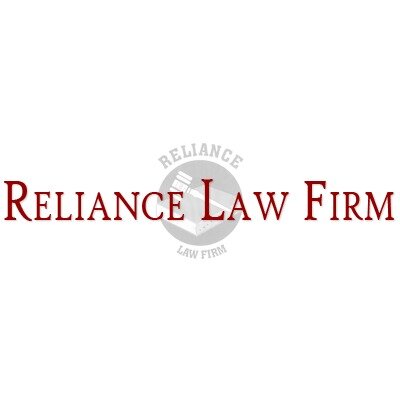Best Franchising Lawyers in Bhaktapur
Share your needs with us, get contacted by law firms.
Free. Takes 2 min.
List of the best lawyers in Bhaktapur, Nepal
About Franchising Law in Bhaktapur, Nepal
Franchising is a thriving sector of the Nepalese economy, and Bhaktapur is no exception with many international and native brands. Nepal does not have a specific law concerning franchising yet, but a legal framework governing business transactions is in place, which includes the Nepal Contract Act, the National Code, the Competition Promotion and Market Protection Act. These regulations also cover franchising fundamentals and dictate the standards for contractual agreements between the franchisee and the franchisor.
Why You May Need a Lawyer
Despite the absence of explicit franchising law, the contractual process, intellectual property rights, and dispute resolution might require in-depth legal understanding. Lawyers can also provide key assistance in other facets such as navigating through commercial leases, interpreting franchise agreements, and ensuring you comply with all relevant regulations. Should a dispute arise, having invested in legal guidance early on may save you from potentially significant financial distress and reputational damage.
Local Laws Overview
The Nepal Contract Act is of notable importance as it outlines the responsibilities of both parties and breach of contract implications. New business franchises should also be aware of the Foreign Investment and Technology Transfer Act (FITTA) as it governs the rights of foreign franchises operating within the country. Intellectual property laws are also important for franchising, and, even though they are relatively new in Nepal, they are strict and enforceable.
Frequently Asked Questions
1. Are there any pre-sale disclosure requirements in Nepal?
While Nepal does not have any specific pre-sale disclosure laws related to franchises, the general contract law requires all parties to provide honest and full disclosure.
2. Can a franchise be terminated early in Nepal?
According to the Contract Act of Nepal, a franchise agreement can be terminated if there's a breach of the conditions stated in the contract.
3. What form of dispute resolution is commonly used in franchising?
Most franchise contracts in Nepal have arbitral clauses requiring parties to resort to arbitration in case of disputes.
4. Is it necessary for the Franchise Agreement to be written in the Nepali language?
Though the Nepali language is preferred, it is not mandatory. English is widely acceptable in legal and business communications.
5. Can a foreign franchisor own a franchise in Bhaktapur, Nepal?
Yes, under the Foreign Investment and Technology Transfer Act (FITTA), a foreign franchisor can own a franchise in Nepal, provided they comply with certain regulations and procedural necessities.
Additional Resources
For supplemental information, consult the Department of Industry, and the Investment Board Nepal for rules and regulations concerning foreign investment. The Patent, Design and Trademark office may provide assistance in maintaining brand and design rights.
Next Steps
Research and understand the basics of franchising and Nepalese laws regarding franchises. Before signing any franchise agreements, seek advice from a lawyer specialized in business and franchise law. The Nepal Bar Association, or private law firms can help in identifying lawyers in this sector. Continued regulatory compliance and dispute resolution also necessitate periodic legal consultation.
Lawzana helps you find the best lawyers and law firms in Bhaktapur through a curated and pre-screened list of qualified legal professionals. Our platform offers rankings and detailed profiles of attorneys and law firms, allowing you to compare based on practice areas, including Franchising, experience, and client feedback.
Each profile includes a description of the firm's areas of practice, client reviews, team members and partners, year of establishment, spoken languages, office locations, contact information, social media presence, and any published articles or resources. Most firms on our platform speak English and are experienced in both local and international legal matters.
Get a quote from top-rated law firms in Bhaktapur, Nepal — quickly, securely, and without unnecessary hassle.
Disclaimer:
The information provided on this page is for general informational purposes only and does not constitute legal advice. While we strive to ensure the accuracy and relevance of the content, legal information may change over time, and interpretations of the law can vary. You should always consult with a qualified legal professional for advice specific to your situation.
We disclaim all liability for actions taken or not taken based on the content of this page. If you believe any information is incorrect or outdated, please contact us, and we will review and update it where appropriate.








